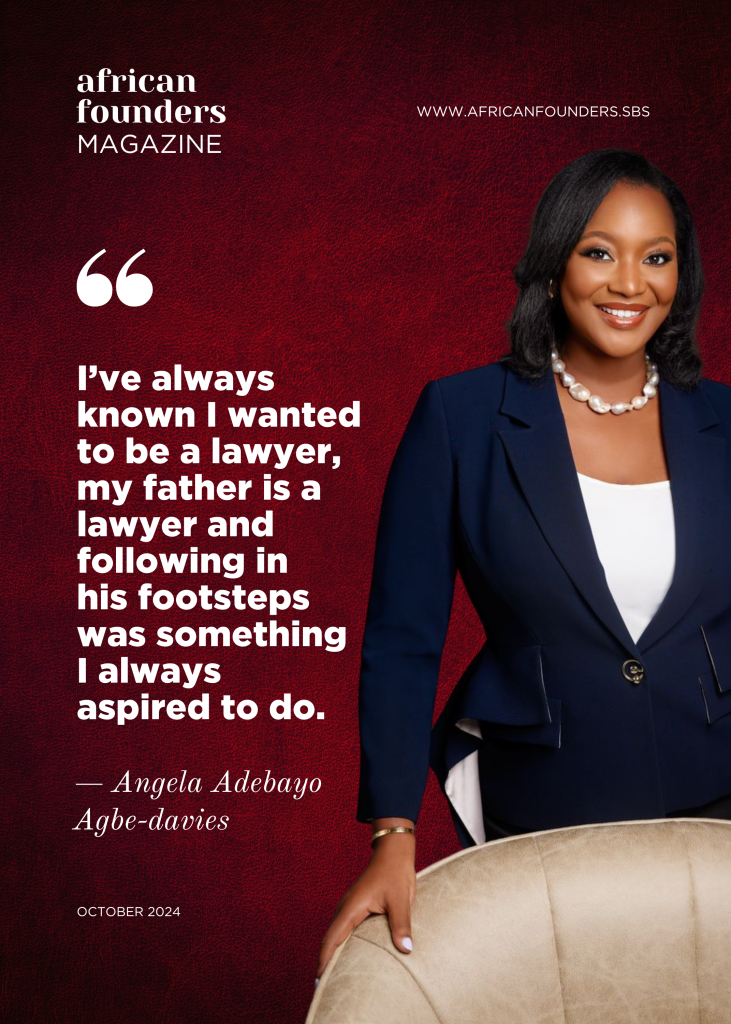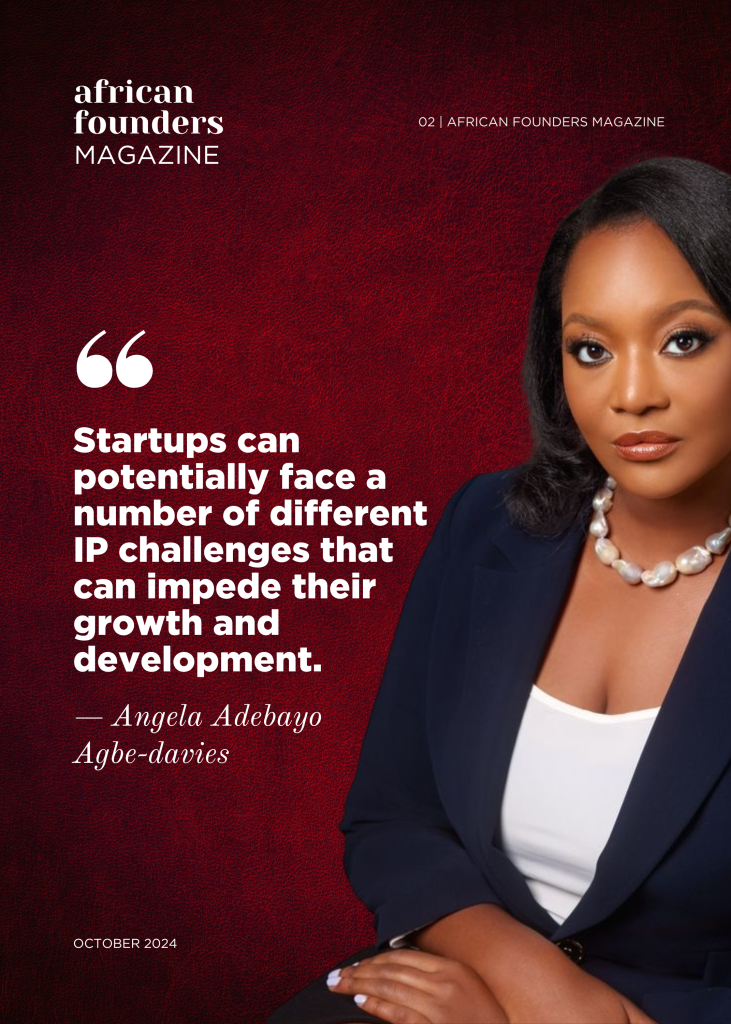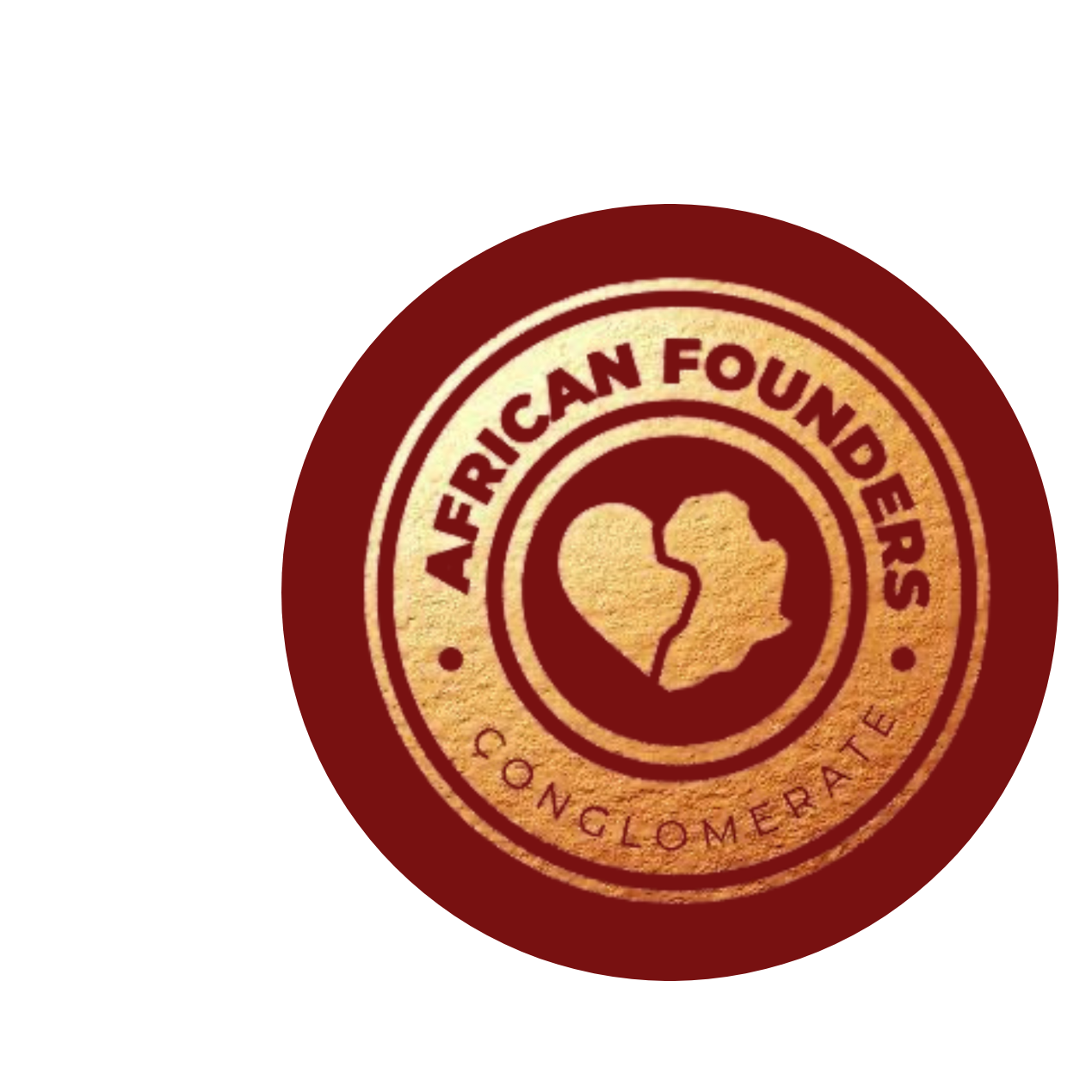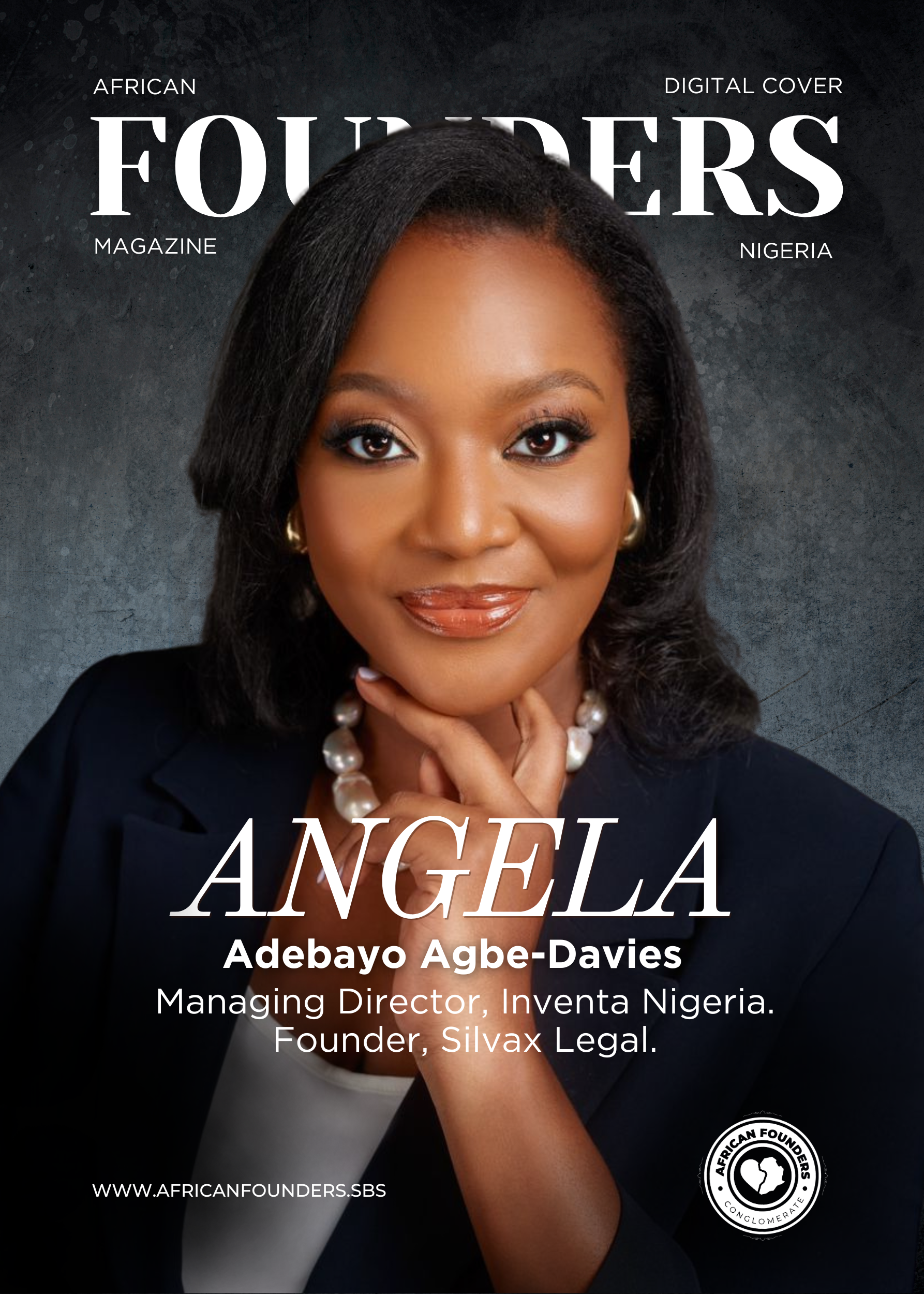Angela is a Nigerian-British lawyer who pursued her legal education at Sussex University and the Inns of Court School of Law.
In 2013, she founded Silvax Legal, a comprehensive law firm. Since then, the firm has collaborated with the esteemed global IP agency Inventa to offer intellectual property services to Nigeria and West Africa, operating under the name Inventa Nigeria. This initiative marks Inventa Nigeria as the first international trademark and patent agency established in Nigeria.
Enjoy her interview.

AFC : Can you share your background and how you became an IP specialist?
Angela : I’ve always known I wanted to be a lawyer, my father is a lawyer and following in his footsteps was something I always aspired to do, I was unclear as to what aspect of law I wanted to specialise in and was lucky enough to dabble in all the different types at my first job. It was there that I discovered IP and how much I like it, it was fast paced, always current and I knew even then that it was something that would have a huge impact on the world as technology and entertainment is ever-evolving. I then chose to do a masters in IP law and I’ve never looked back.
AFC : What Sparked your interest in IP Law
Angela : IP encompasses a number of different sectors and markets as well as different sizes of entities, the IP of a sole trader is equally as important as a giant conglomerate the IP rights of a television presenter as important as a food manufacturer and when I first realized this I knew that it was a very special area of law. There is no industry that isn’t affected by IP and brand recognition, inventions and creativity are all afforded some form of IP protection, this coupled with the rise in technology I was witnessing during my training and how IP interfaced with that all served a role in influencing my interest.
AFC : How do you define intellectual property, and why is it crucial for businesses and individuals?
Angela : Intellectual property encompasses the legal rights that protect creations of the mind, this includes inventions, artistic works, trademarks, and trade secrets, in short, your business name can be a trademark and your invention can be a patent, the list goes on and on. It is crucial for businesses and individuals as it safeguards innovations, provides a competitive advantage, creates monetization opportunities, encourages creativity, and offers legal recourse against infringement. In short, an IP asset is just as important as a tangible one such as a house or a car.

AFC : What are the most common types of IP disputes you encounter
Angela : Hands down it is trademark infringement, there is a certain level of goodwill that individuals or companies have in their trademark. They work so hard to build a brand to distinguish themselves as being a leader in their field and then another company maliciously tries to steer that goodwill onto themselves by what is essentially copying or stealing. It is actually so sad to see, but where someone doesn’t protect their rights from the onset it makes it that much harder to be able to assist when this copying occurs.
AFC : How do you stay up-to-date with changing IP laws and regulations?
Angela : I stay current with evolving laws and regulations by regularly consulting legal journals and publications focused on IP. I also participate in worldwide industry conferences, I was actually in Atlanta USA a couple of months ago for the INTA conference which is the biggest trademark conference in the world. I try to attend webinars for insights from experts and peers and I engage with professional organizations that offer valuable resources. Additionally, I use online legal research tools and subscribe to relevant newsletters to receive timely updates on significant developments.
AFC : How do you assess the strength and validity of a patent/trademark/copyright claim?
Angela : Assessing the strength and validity of a patent, trademark, or copyright claim involves a systematic evaluation of several key factors.
For patents, I analyze the claims for clarity and specificity, ensuring they meet the requirements of novelty, non-obviousness, and usefulness. This includes conducting a thorough review of prior art to determine whether the invention is genuinely innovative and distinct from existing technologies.
In the case of trademarks, I assess distinctiveness by examining whether the mark is descriptive, suggestive, arbitrary, or fanciful. I also investigate potential conflicts with existing marks through comprehensive searches, considering factors such as similarity and the likelihood of confusion in the marketplace.
For copyright claims, I confirm that the work is original and fixed in a tangible medium of expression, while also considering whether the claimed rights fall within the scope of copyright protection and assessing any potential fair use defenses or other limitations.
Through this thorough analysis, I can provide a well-informed assessment of the strength and validity of the claim, guiding clients on the best course of action.
AFC : How does IP impact emerging industries like tech, biotech, or renewable energy?
Angela : Intellectual property (IP) significantly impacts emerging industries like technology, biotechnology, and renewable energy by fostering innovation and attracting investment. In the tech sector, IP protections encourage the development of proprietary software and technologies, essential for maintaining a competitive edge. In biotechnology, strong patent rights are crucial for protecting new drugs and therapies, enabling companies to secure funding for lengthy development processes. For renewable energy, IP safeguards innovations in sustainable technologies, stimulating investment in clean energy solutions vital for combating climate change. Overall, IP serves as a critical foundation for growth and innovation across these industries.
AFC What unique IP challenges do startups face, and how can they overcome them?
Angela : Startups can potentially face a number of different IP challenges that can impede their growth and development. One significant challenge is the difficulty in conducting thorough IP searches and securing protections themselves. To overcome this, startups should be sure to see a lawyer from the outset to make sure their IP plan is well thought out from the start.
Another challenge involves establishing clear ownership of IP, particularly when multiple founders or collaborators are involved. Startups should address this issue by implementing well-defined agreements and contracts that explicitly delineate IP ownership and responsibilities from the outset, thereby avoiding potential disputes in the future.
Additionally, startups often encounter difficulties in enforcing their IP rights due to budget constraints and limited market presence. To mitigate this risk, they should focus on building strong brand recognition through trademark protections, which in the long run will be more cost-effective than a potential litigation down the line.

AFC : Can you share a notable case or success story in your IP career
Angela : Perhaps my biggest success story, or at least the one I hold closest to my heart was establishing the first International IP firm in Nigeria. Inventa International, is the sister company of the internationally renowned firm Inventa and was the first of its kind in Nigeria.
AFC : How do you advise clients on balancing IP protection with innovation and collaboration?
Angela : First, I would recommend assessing their IP portfolio to identify key assets that need protection, allowing clients to focus resources on valuable innovations while maintaining flexibility. Next, and potentially most importantly, I encourage the adoption of clear contractual agreements, such as non-disclosure agreements (NDAs) and licensing arrangements, to facilitate partnerships while safeguarding proprietary information.
Additionally, fostering a culture of innovation is crucial; I suggest regular training sessions on IP matters to ensure team members understand the importance of protecting innovations during collaboration. Finally, I stress the importance of ongoing monitoring and adaptation of their IP strategy in response to market changes and technological advancements.
AFC : What trends or changes do you foresee in the IP landscape in the next 5-10 years?
Angela : I foresees several significant trends in the IP landscape including an increased focus on the ownership of AI-generated inventions, evolving trademark regulations to address the complexities of e-commerce and global markets, and a growing emphasis on IP protections for sustainable technologies as environmental awareness rises. Additionally, there will likely be continued movement toward the international harmonization of IP laws, simplifying processes for businesses seeking protections across jurisdictions. Lastly, advancements in technology, particularly in digital monitoring and blockchain, will enhance enforcement mechanisms, allowing rights holders to better protect their assets in the digital realm.

AFC : What advice would you give to aspiring IP professionals?
Angela : First, never give up, the legal landscape in Nigeria is highly competitive and finding a way to stand out is incredibly important. Then make yourself the best- develop a solid understanding of various IP sectors, including patents, trademarks, copyrights, and trade secrets, to provide comprehensive client advice. Pursuing specialized education or certifications in IP law can enhance your credentials, while continuing legal education and workshops will keep you informed about the latest developments.
Networking is essential; connect with experienced professionals through industry associations and conferences, and seek mentorship for valuable insights. Stay updated on technological advancements, especially in areas like artificial intelligence and digital content, to position yourself as a forward-thinking expert. Finally, cultivate strong analytical and communication skills, as effective IP practice requires both legal acumen and the ability to convey complex concepts clearly. By integrating these strategies with a passion for innovation, you can build a rewarding career in the IP field.


Leave a Reply